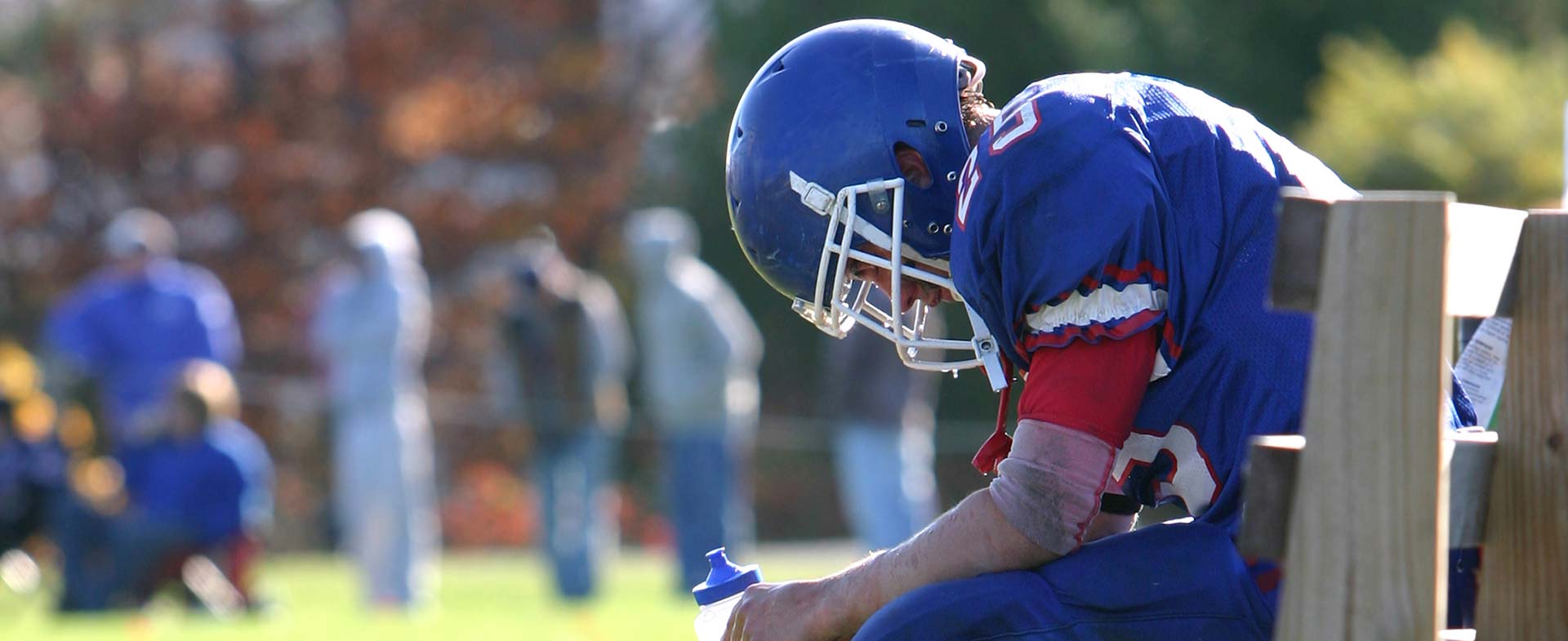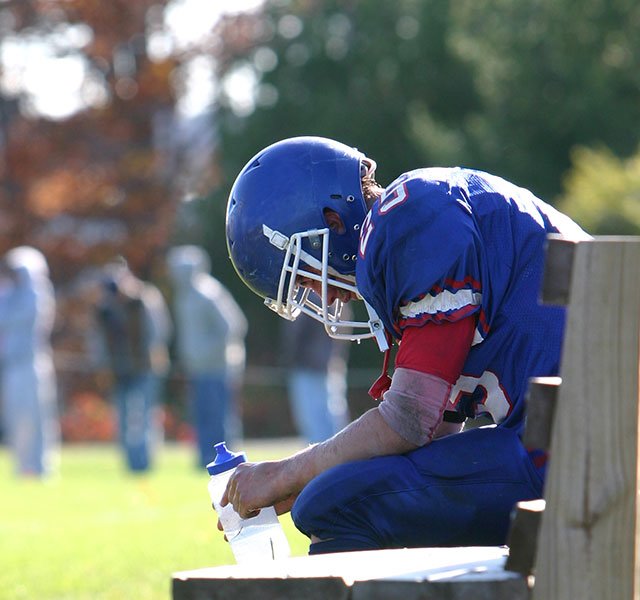It takes a lot more than just raw talent to be an athlete. Whether you are just starting off or are going pro, managing the pressure of competing is something all athletes in all sports face. But more often than not, the outcome of the competition, whether you win or lose, is highlighted more than the mental clarity necessary to perform at your best.
Kristin Felgenauer, MSW, a behavioral health therapist and clinical social worker for Henry Ford Health, discusses one of the toughest opponents that athlete face when competing – their own mental health.
“Athletes set high expectations for themselves and often feel there is a greater pressure to succeed so they don’t let people down,” says Felgenauer. “They aren’t just trying to succeed for themselves but for their parents, coaches, teammates, etc.”
For athletes, the swings from their highs and lows seem bigger than in other scenarios – the satisfaction and joy when you win versus the heartbreak and disappointment if you lose. As a result, mental exhaustion and other mental health issues can become more prevalent, especially at higher levels of competition.
The Importance Of Mental Clarity In Sports
In almost every sport, a split-second decision can make or break the outcome of your performance. You need to be sharp, focused and able to stay in the game. But if you struggle with your mental health or don’t have the clarity to make these decisions, you not only risk underperforming, but more importantly, getting seriously injured.
“Mental stress can inhibit your ability to perform at all at times,” says Felgenauer. “Instead, learn strategies for approaching competition with a healthier mindset.”
Felgenauer shares some advice that she gives athletes for better managing their mental health:
- Focus on what you need to do. Remove the competition from the equation and focus on what your body needs to be the best version of yourself. In addition to exercise and conditioning, take care of your body. Get adequate sleep, eat nutritiously and practice injury prevention techniques like stretching and taking rest days.
- Talk through your stressors. Don’t hold in the things that are frustrating you. Instead, confide in a friend, family member or a professional. Sometimes talking through things is one of the best ways to support good mental health.
- Set realistic goals. Wanting to be the best at a sport is every athlete’s dream, but progress and success takes work. Re-evaluate your personal goals to make sure you aren’t pushing yourself too hard or setting unrealistic expectations for yourself.
- Remember why you started. The immense pressure athletes put on themselves can quickly cause burnout. Many athletes start to look at their sport as a job rather than a passion or hobby. Try to refocus your mindset to highlight why you choose this sport and how far you’ve come since you started.
- Engage with professionals. Let your trainer, coach or doctor know that you are struggling. Don’t think that you can necessarily work through everything on your own. Speaking with someone with experience in helping athletes deal with mental stress – even working with a licensed therapist – can help you develop the tools you need to get back on track.
How To Advocate For Athletes
Everyone isn’t cut out to be an athlete. But if you enjoy watching sports, coaching, or are the parent or guardian of an athlete, Felgenauer says there is still plenty you can do to support the mental health and wellbeing of athletes.
“Check in with athletes, especially if you notice behavioral changes,” says Felgenauer. “Always ask if there is anything you can do to help.”
Additionally, remember that it is important to treat athletes as more than just their sport. It can be easy to forget that athletes have a whole life outside of the sport they play. If you can, make sure to engage with athletes outside of competition and avoid directing all conversations or interactions with their sport.
Subscribe today to get a weekly email of all the latest tips from Henry Ford experts.
To find a doctor or therapist at Henry Ford, visit henryford.com or call 1-800-436-7936.
Kristin Felgenauer is a behavioral health therapist and clinic social worker. She sees patients at One Ford Place in Detroit.



